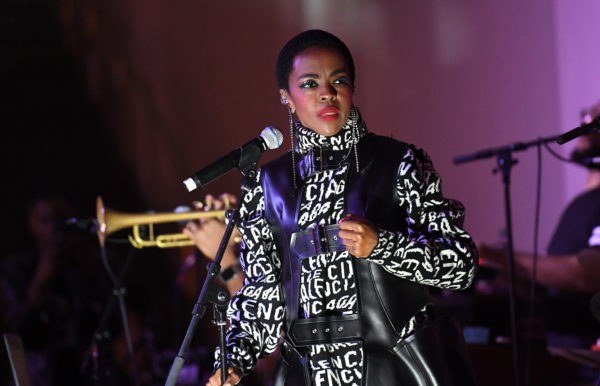Lauryn Hill Reveals Why She Never Released a Follow-Up to ‘The Miseducation of Lauryn Hill’: No One from My Label Has Ever Called Me
Lauryn Hill’s seminal record, “The Miseducation of Lauryn Hill,” was also the artist’s first and last. The album was a rousing success, garnering her numerous accolades, including five Grammy Awards and numerous other nominations and honors. The respected legacy of the album has endured, with it appearing on many lists ranking the greatest albums ever; it is the 154th most-ranked record on critics’ all-time lists, according to Acclaimed Music.
That all speaks to why critics and fans were perplexed when, after all of her accomplishments, after releasing her debut album and embarking on a worldwide, sold-out tour, Hill seemingly disappeared.

The performer has emerged in the years since, but has remained a reclusive, enigmatic figure, giving brief, sporadic performances to eager fans. Now, in a rare, extensive interview for “Rolling Stone’s 500 Greatest Albums” podcast, Hill talked about the making of Miseducation and her subsequent actions. She spoke frankly about the absence of a second album, citing lack of support from her then labels Ruffhouse Records and Columbia Records (though it was unclear which label she was referring to in the excerpt).
“The wild thing is no one from my label has ever called me and asked how can we help you make another album, ever, ever. Did I say ever? Ever!” Hill said. “With ‘The Miseducation,’ there was no precedent. I was, for the most part, free to explore, experiment and express. After ‘The Miseducation,’ there were scores of tentacled obstructionists, politics, repressing agendas, unrealistic expectations, and saboteurs everywhere. People had included me in their own narratives of their successes as it pertained to my album, and if this contradicted my experience, I was considered an enemy.”
Hill expressed that, lorded over by others driven by money, she was worked to her limits, and felt stunted creatively.
“Artist suppression is definitely a thing,” she continued. “I won’t go too much into it here, but where there should have been overwhelming support, there wasn’t any. I began touring because I needed the creative outlet and to support myself and my family. People were more interested in breaking me or using me to battery-power whatever they had going on than to support my creativity. I create at the speed and flow of my inspiration, which doesn’t always work in a traditional system.”
She added, “I have always had to custom build what I’ve needed in order to get things done. The lack of respect and willingness to understand what that is, or what I need to be productive and healthy doesn’t really sit well with me. When no one takes the time to understand, but only takes the time to count the money the fruit of this process produces, things can easily turn bad. Mistreatment, abuse and neglect happen.”
Hill’s decision to shun the music industry disappointed her devotees, yet has not appeared to dampen the lasting appeal of the album. She said this was due to the universal truths she shared through her work and the innovative nature of the music.
“I’ve always been pretty critical of myself artistically, so of course there are things I hear that could have been done differently but the LOVE in the album, the passion, it’s intention is to me, undeniable,” she explained. “I think my intention was simply to make something that made my foremothers and forefathers in music and social and political struggle know that someone received what they’d sacrificed to give us, and to let my peers know that we could walk in that truth, proudly and confidently.
At that time, I felt like it was a duty or responsibility to do so,” she said. “I challenged the norm and introduced a new standard. I believe ‘The Miseducation’ did that and I believe I still do this — defy convention when the convention is questionable.”
In the conversation, Hill also talked about race, her creative process and being in the public eye. The full interview can be heard on “Rolling Stone’s 500 Greatest Albums” podcast on Amazon Music.

